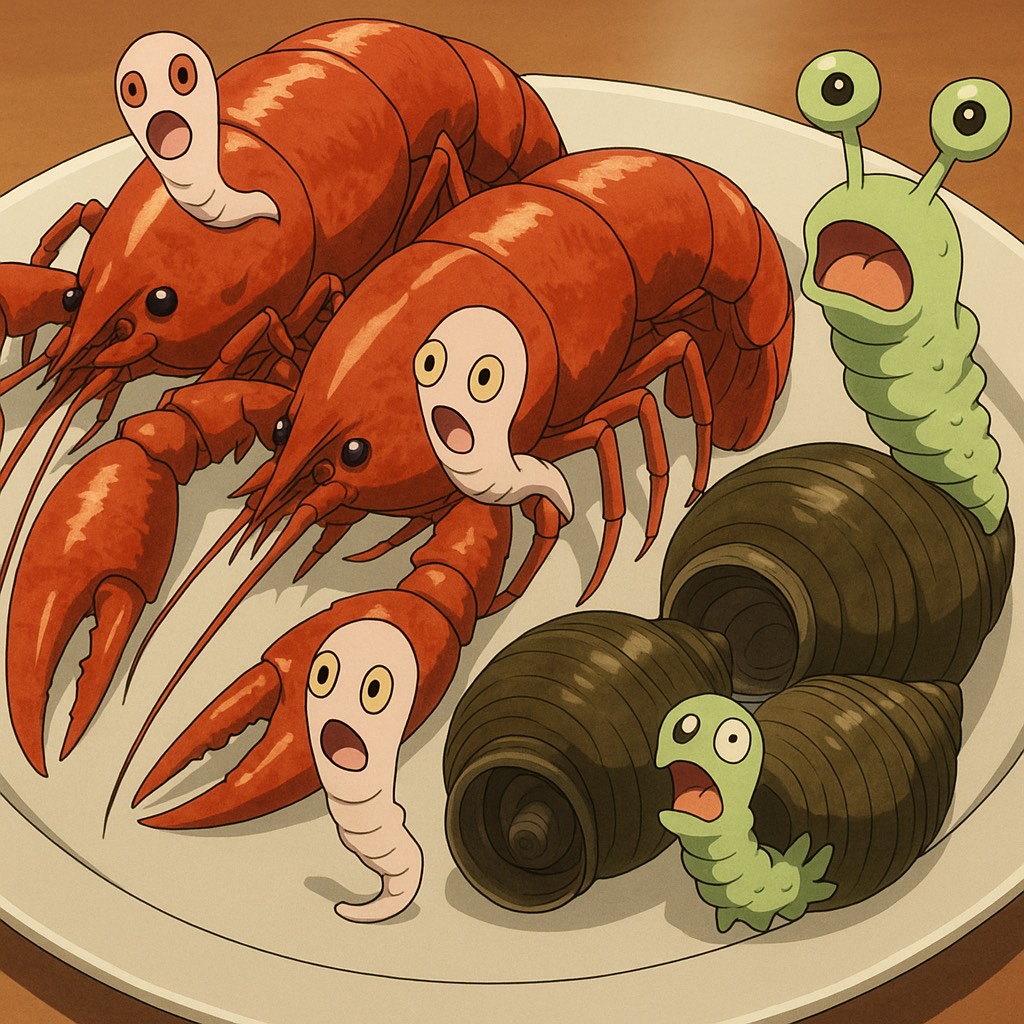有哪些海鮮食物容易有寄生蟲
在日常飲食中,某些特定的食物若未經妥善烹調或處理,會有較高的機會攜帶寄生蟲,對健康造成威脅。其中較為人熟知的就是田螺與小龍蝦。田螺常見於亞洲地區的夜市或熱炒中,由於其生活環境多在水田與池塘中,容易攜帶肺吸蟲等寄生蟲。若食用未完全煮熟的田螺,這些寄生蟲可能進入人體,進一步影響肺部或其他器官,導致肺吸蟲病,出現咳嗽、發燒、胸痛等症狀。
小龍蝦則是另一種風險較高的水產食材。牠們多棲息在水質混濁、富含有機物的環境中,因此體內也可能寄生肺吸蟲或其他寄生性蠕蟲。如果食用烹調不完全的小龍蝦,或是在處理時未注意衛生,就有可能因為寄生蟲或其卵進入體內而生病。在某些地區也曾出現集體食物中毒案例,與食用生食或半生熟的小龍蝦有關。
除了田螺與小龍蝦,淡水魚類也屬於高風險食材之一。例如鯉魚、鱔魚等,在未徹底加熱的情況下食用,可能會感染肝吸蟲,這種寄生蟲會攻擊肝臟與膽管,長期下來甚至可能導致慢性肝病或增加肝癌風險。
此外,某些海產品如海膽、章魚等若生食,也存在寄生蟲或病原微生物感染的潛在危險。尤其是非冷鏈保存的新鮮海產或自家捕撈未經檢驗的水產品,風險更高。
因此,無論是愛吃海鮮或熱炒、燒烤的民眾,都應避免食用未煮熟的淡水螺類與甲殼類,並保持食材清洗與烹調過程的衛生。生食風潮雖風靡一時,但在選擇前仍應了解背後的風險,避免寄生蟲從口入,對健康造成長遠影響。
In everyday diets, certain foods—if not properly cooked or handled—carry a higher risk of harboring parasites, posing potential threats to human health. Among the most well-known examples are river snails and crayfish. River snails are commonly found in night markets or stir-fried dishes across Asia. Because they typically inhabit rice paddies and ponds, they are prone to carrying parasites such as lung flukes. Consuming undercooked snails may allow these parasites to enter the human body, potentially affecting the lungs or other organs and leading to paragonimiasis, a disease that can cause symptoms such as coughing, fever, and chest pain.
Crayfish are another high-risk aquatic ingredient. These crustaceans usually dwell in murky, organic-rich waters, making them susceptible to infection by lung flukes or other parasitic worms. Eating inadequately cooked crayfish—or mishandling them during preparation without proper hygiene—may result in parasitic infection through the ingestion of larvae or eggs. In some regions, outbreaks of foodborne illness have been linked to consuming raw or partially cooked crayfish.
In addition to river snails and crayfish, freshwater fish such as carp and eel also pose significant health risks when not thoroughly cooked. These fish can carry liver flukes, which target the liver and bile ducts. Prolonged infections may lead to chronic liver disease or even elevate the risk of liver cancer over time.
Certain seafood, such as sea urchin and octopus, also carries potential risks if eaten raw. These risks are especially pronounced when seafood is not stored under a cold chain system or when self-caught, uninspected marine products are consumed. These can be contaminated with parasites or pathogenic microbes.
Therefore, seafood enthusiasts and those who enjoy stir-fried or grilled dishes should avoid consuming undercooked freshwater mollusks and crustaceans. It is essential to maintain hygiene throughout both the cleaning and cooking processes. Although raw food trends have gained popularity in recent years, it is important to understand the underlying health risks before indulging. Preventing parasites from entering the body through food is crucial to avoiding long-term health consequences.

- 1
- 2
- 3
- 4
